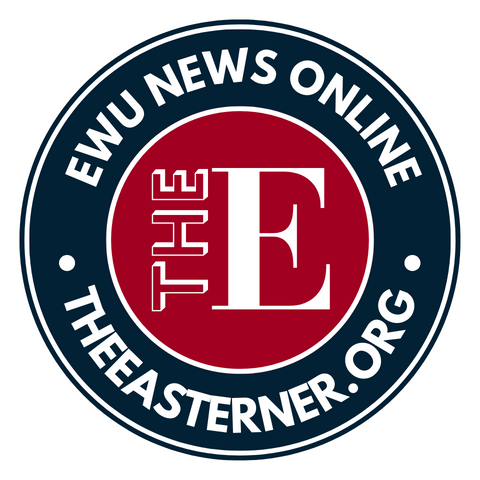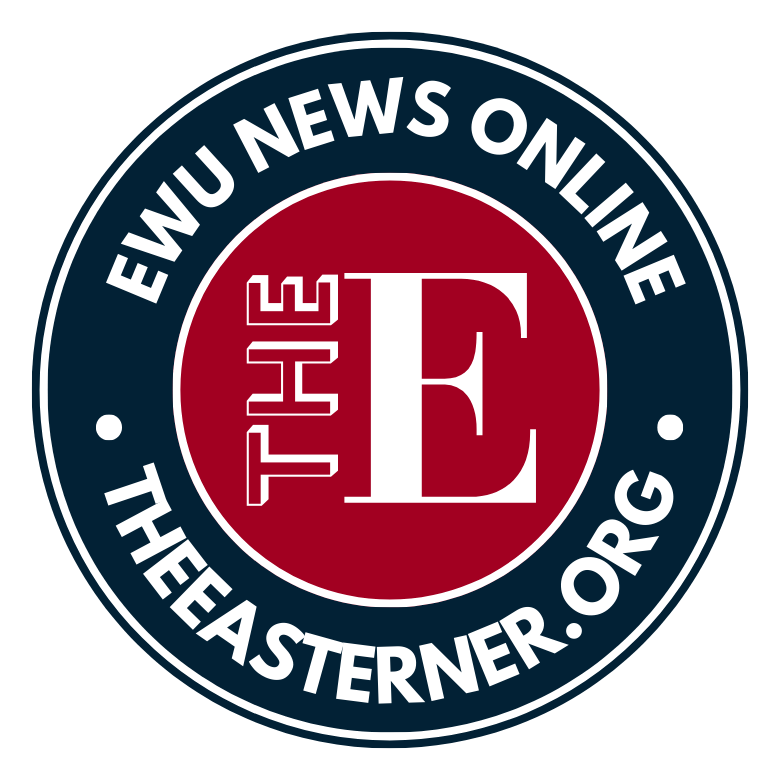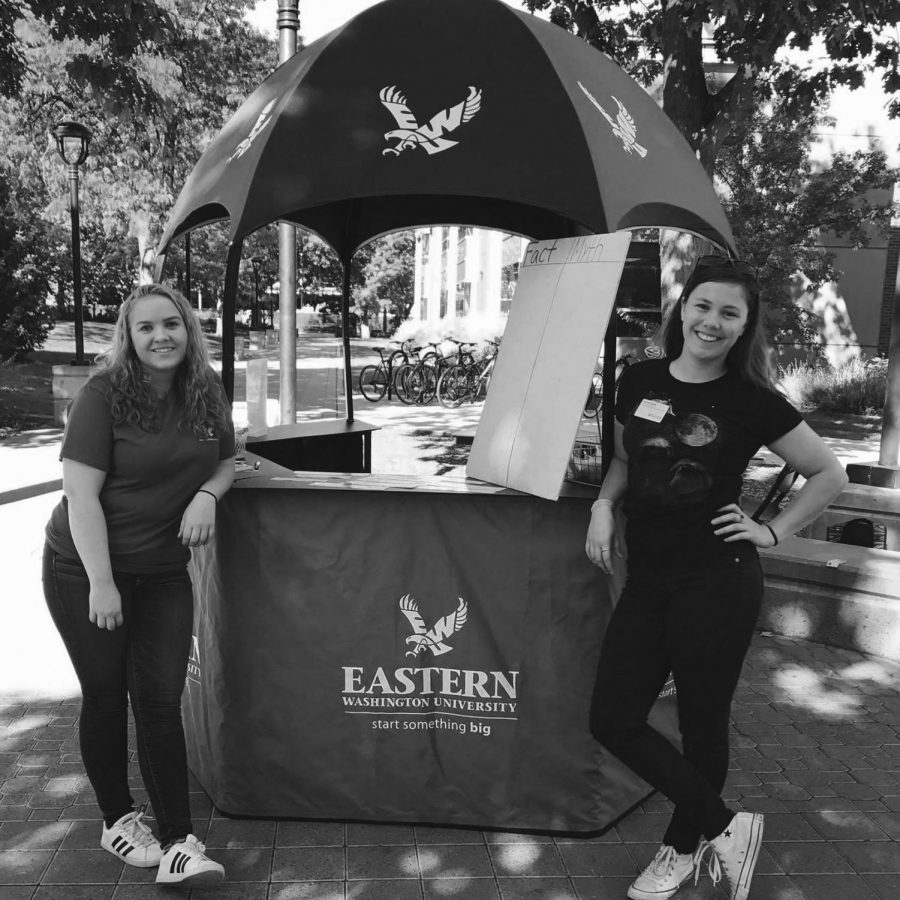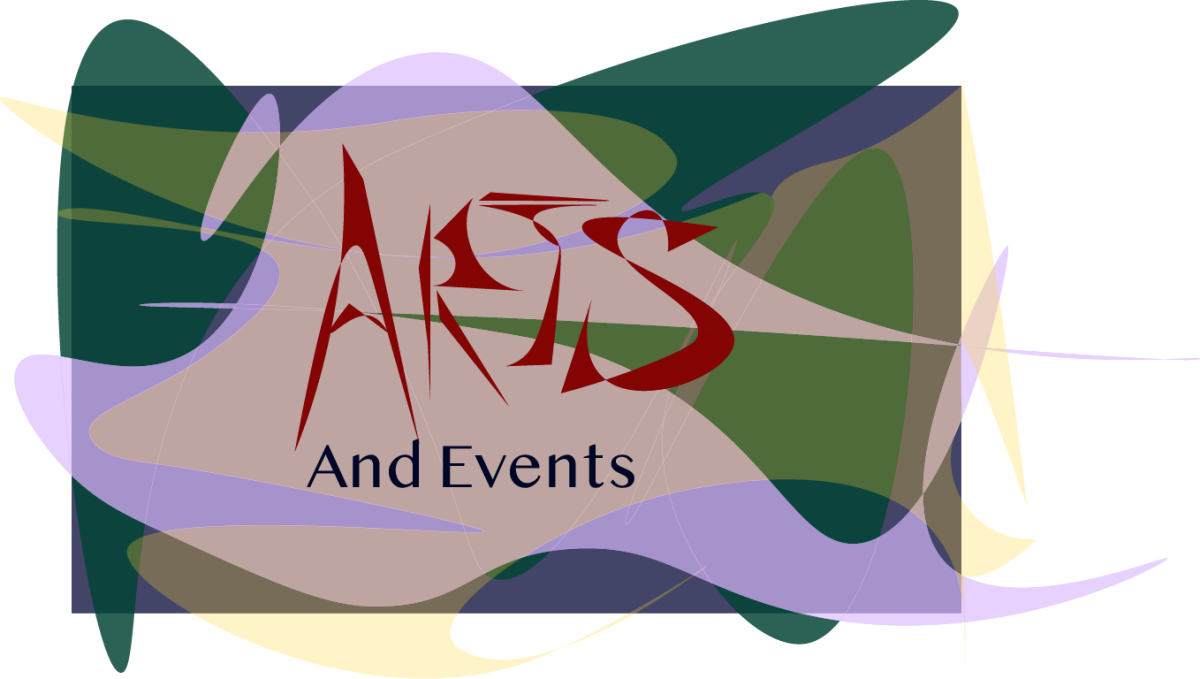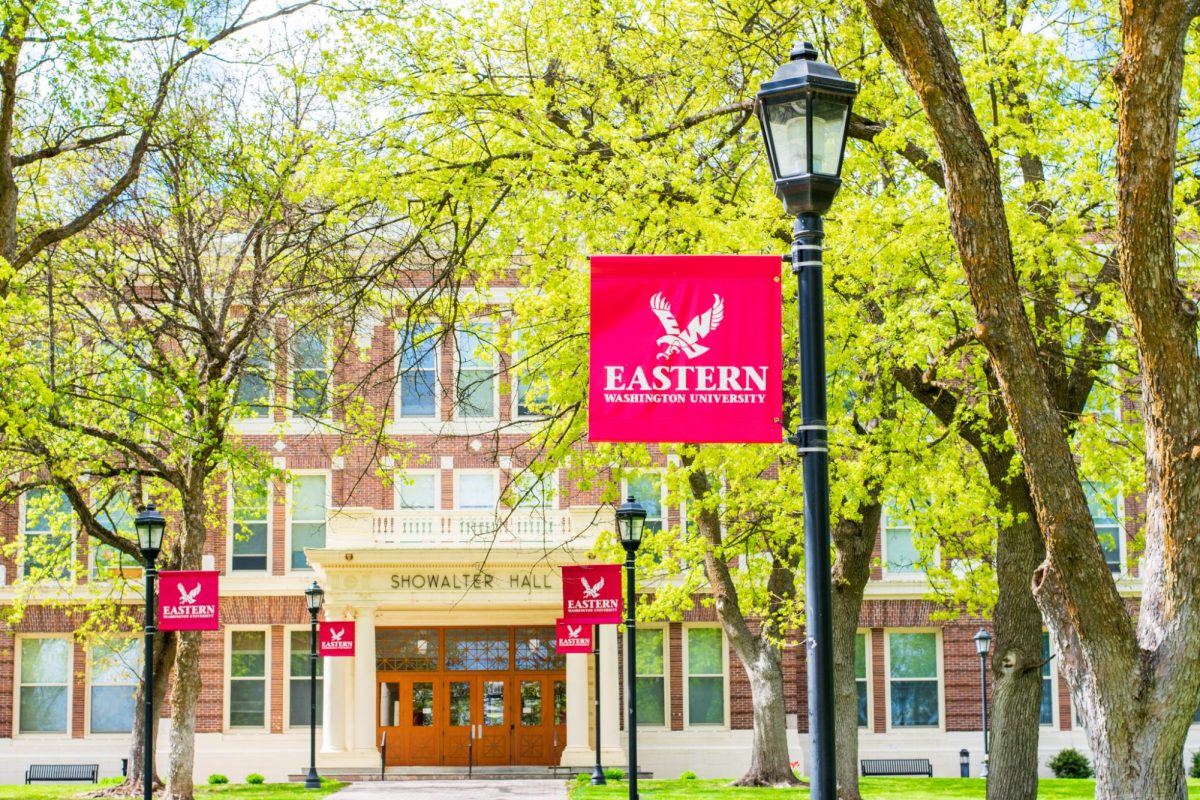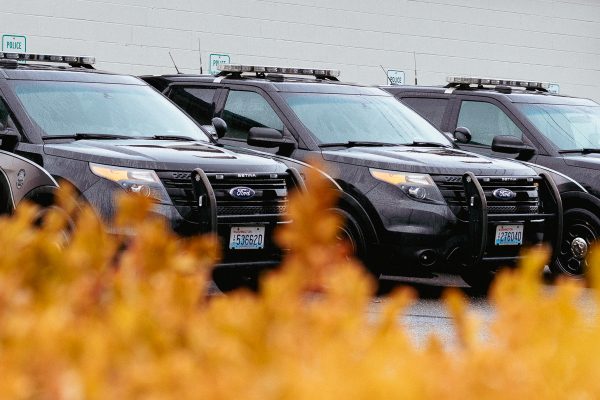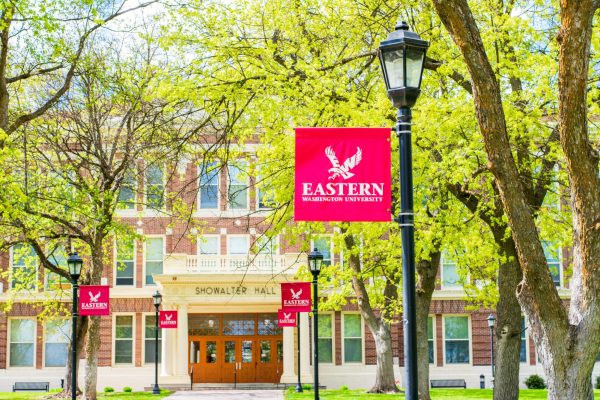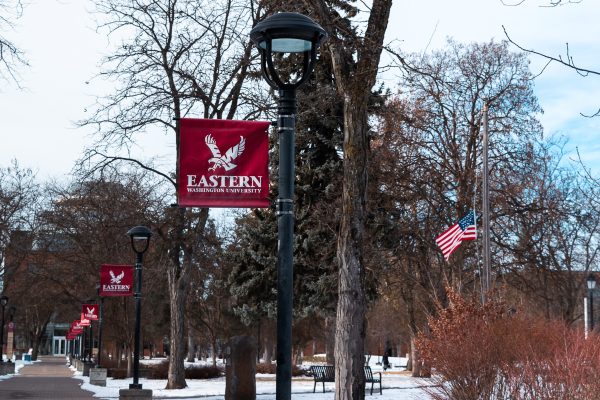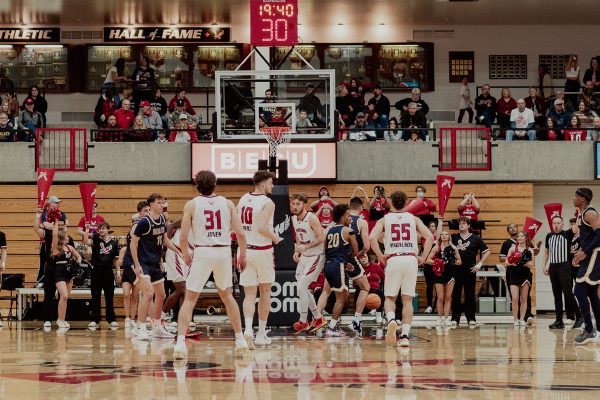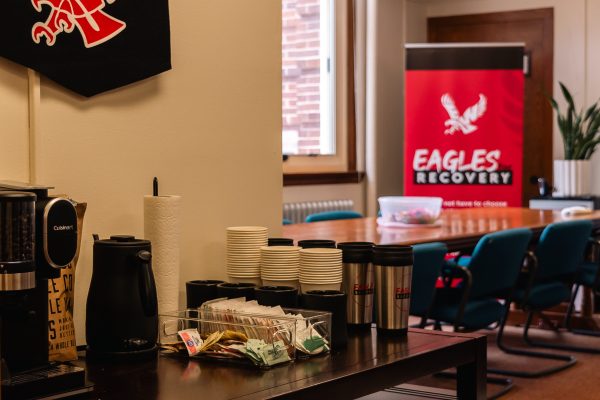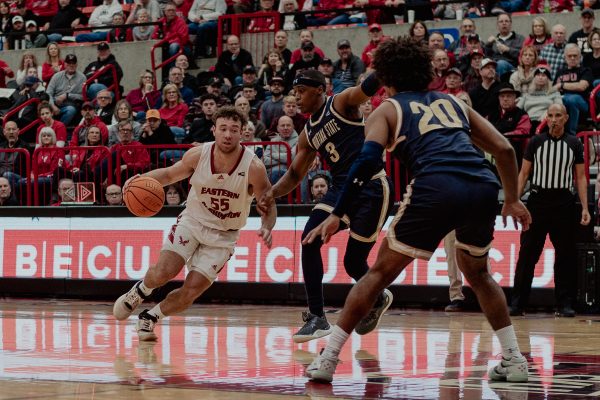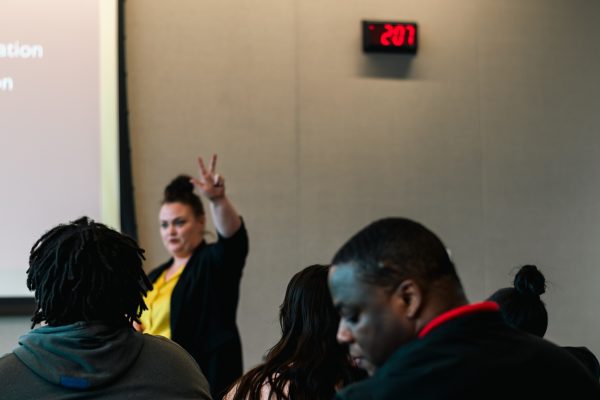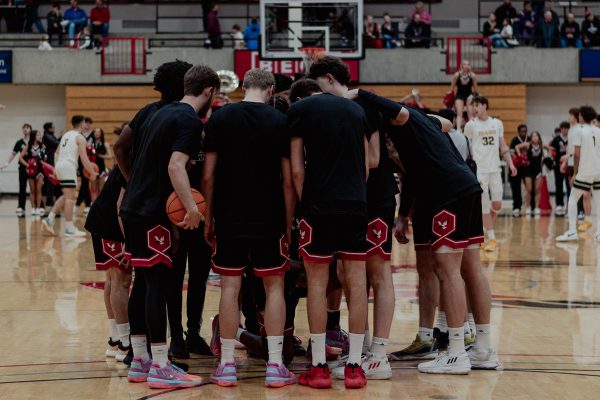You won’t find pizza in this ‘Hut’
Sophomore Rylie Campbell (left) and Senior Carrie Cutler (right) stand with the Health Hut table at an event earlier this year. The wellness club gives students tips and swag at the hut twice a week | Photo courtesy of the EWU Health and Wellness Facebook page
November 8, 2017
The students of the EWU Peer Health Educator club hold a Health Hut twice a week on the Eastern campus to inform students about relevant health issues by participating in activities, trivia and more.
The Health Hut is a biweekly event put together by the Peer Health Educators club funded by the Health, Wellness, and Prevention Services on campus. Free swag and helpful information is always available to those who participate in the Health Huts.
“The Health Hut is great because they are able to reach a group of students who wouldn’t come to our office and seek out resources, and so they’re out and about and students are learning health information,” Peer Health Educators adviser Tricia Hughes said.
The Health Hut is organized by EWU sophomore Rylie Campbell this year, who takes care of the games, chooses a different topic each week, selects the prizes and brochures and anything else that needs to be taken care of. Other events held by the Peer Educators club include Condom Mania, sexual assault awareness month and alcohol awareness.
“It’s really easy to get involved, everyone is really friendly and as long as you can be comfortable talking about the topics, it is a great environment to get involved in,” Campbell said.
When talking to the club members, they each had something to say about feeling like their club was making a difference. The club participates in many other campus events and usually runs a booth where students can learn more about health and easily win t-shirts, stationery and more. According to the peer educators, they have noticed students talking about topics covered by their booths and informational pamphlets.
“It’s definitely the small things that really make a big difference […] the more we get people informed, the more change we create,” Mariah Beardslee, Peer Health Educators Social Media Lead, said.
“It’s been a real eye opener, it’s really opened me up to a lot of misconceptions people have […] giving people the right information and seeing that change in people when they learn something new.”
Not only does it affect the students getting information from the peer educators, but it also informs the club members about health issues and getting a deeper understanding.
“I notice improvement in their own personal health habits, I notice improved communication, improved knowledge about the resources that exist for students and just feeling comfortable interacting with their peers at the level of an expert,” Hughes said.
Beardslee uses the information she has learned while being a member of Peer Educators in her personal life. According to Beardslee, the club has helped her go more into depth about the topics they cover throughout the club.
For example, bystander intervention is when someone sees a situation going on, looks and assesses what is happening and decides if you need to intercede for someone.
An experience from Beardslee represents how she has used material from the club to help someone in her own time. She attended a party and witnessed an intoxicated young woman go into a room with a not-so- drunk young man.
Concerned about the situation unfolding in front of her, she felt the responsibility to help and when the man went to the bathroom, Beardslee went into the room and asked if the woman wanted to be there. When she said not really, Beardslee helped her get out of that situation and made sure she was okay
Beardslee was impressed to see other people intervening as a reaction to her helping the woman and even talked to the man about what he did was wrong, made sure he understood how consent works and that it should always be required.
The club is taking the necessary steps to inform students of health and wellness data and improve the EWU campus to make it a safe and successful environment for its students. •
“What we are all about is trying to create a healthy campus community for living, learning, working, and playing and we try to address those health and well-being issues that might impact academic success of our students,” said Hughes.
